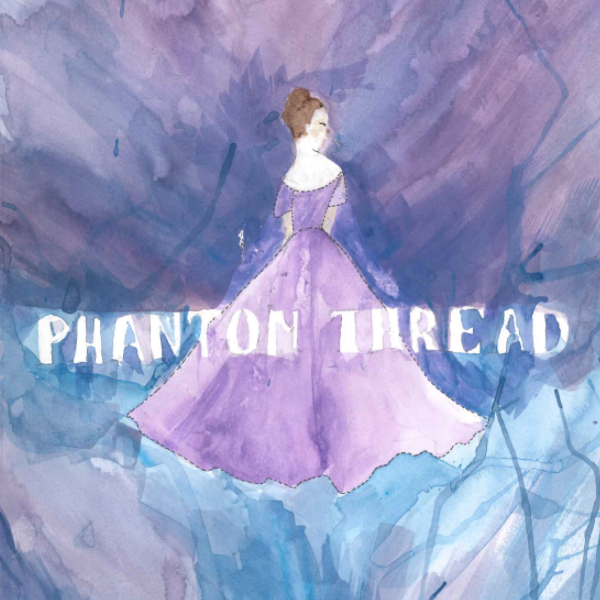“Phantom Thread”: A Boring Film in a Pretty Dress
April 25, 2018
Falcon Rating: 2/4
The whole point of movies is to entertain people. People go to the movies for stories and characters to distract them from their day. So, it stands to reason that when a movie can’t entertain its audience, it fails as a movie. This is where Phantom Thread fits in. An excellent performance by its lead and director try to save it, but they lose out to the slow, drudging pace.
The story in Phantom Thread isn’t an uninteresting one on paper. Reynolds Woodcock (Daniel Day-Lewis) is a revered dressmaker for the elite of 1950’s London, who lives for his work. In the mornings, he wakes up, dresses himself, and gets started sketching right at the breakfast table. His almost clockwork personality and mannerisms are offset by his immensely creative mind, designing very elegant but even more intricate pieces of art. Woodcock’s mechanical lifestyle is interrupted by the introduction of the story’s narrator, Alma (Vicky Krieps), at first just a waitress who takes Reynolds’s order. He takes interest in her for her “perfect” figure, which he traces yet again back to his work. The whole movie is about Woodcock, and it’s through Alma’s eyes that the audience unravels him, seeing how much of himself the man puts into his work. This is where the disappointing potential of Phantom Thread shows through.
The whole film is an admittedly excellent allegory for what an artist puts into their work, influenced by the real lives of Day-Lewis and director Paul Thomas Anderson. There’s an authenticity to the pain Woodcock suffers—a sincerity I haven’t seen since Birdman. One of a few scenes I liked was when Woodcock steals back his dress off a sleeping woman once he discovers the horrible way it’s been treated. Now, we’ve seen Woodcock pour his soul into that dress, so his reaction makes sense. In reality this would probably be Anderson’s feeling that the viewing audience doesn’t appreciate the amount of effort and work that goes into creating something. All of this sounds good, if a bit heavy. But the movie falters with conveying these ideas in an appealing way. Conversations go far too long, not in the Aaron Sorkin way of building a discussion up to a pinnacle header, but just by dragging and going nowhere fast.
Especially for a dialogue-heavy character study, those exchanges need to be interesting enough to hold your attention. Sitting in the theater there were many times I felt bored and tuned out the noise
Anderson works hard to make this a nice movie to look at, but he struggles to find a pace that holds your attention. The problem with Phantom Thread is its editing, or lack thereof. On paper, Phantom Thread works. It’s a story of three obsessed artists who can’t hold separate their work and personal lives. Two you see, in Day-Lewis and the character he plays. The last is unseen: Anderson, the writer-director. But in practice, it’s bogged down by serious problems in pacing, editing, and focus. If Phantom Thread had a half hour cut from it, I’m sure it could’ve only benefitted. I’m confident somewhere inside Phantom Thread is a much better movie begging to be set free.
This piece also appears in our March/April print edition.











